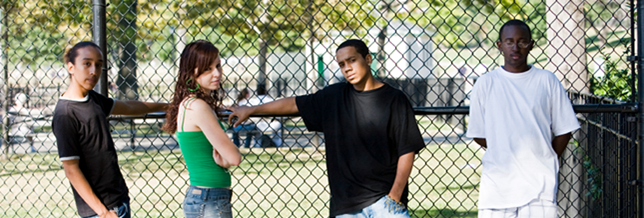About Integrative Treatment of Complex Trauma
for Adolescents

ITCT-A is an evidence-based, multi-modal therapy that integrates treatment principles from the complex trauma literature, attachment theory, the self-trauma model, affect regulation skills development, and components of cognitive behavioral therapy. It involves structured protocols and interventions that are customized to the specific issues of each client, since complex posttraumatic outcomes are notable for their variability across different individuals and different environments.
A key aspect of ITCT-A is its regular and continuous monitoring of treatment effects over time. This involves initial and periodic evaluation of the youth’s symptomatology in a number of different areas, as well as assessment of his or her ongoing level of support systems and coping skills, family/caretaker relationships, attachment issues, and functional self-capacities. The client’s social and physical environment is also monitored for evidence of increased stressors or potential danger from revictimization or broader community violence.
Unlike most structured trauma treatment approaches for children and adolescents, ITCT-A does not have a pre-established number of sessions to be applied for every client. Instead, therapy may range from several months to a year or more, although most clients appear to require an average of approximately six to eight months of treatment. Although the USC-ATTC provides information and training on ITCT-A, there is also a child version of ITCT (ITCT-C) for clients ages 8 to 12.
Publications
Briere, J., & Lanktree, C.B. (2013). Integrative treatment of complex trauma for adolescents (ITCT-A): A guide for the treatment of multiply-traumatized youth, 2nd edition. Los Angeles, CA: USC Adolescent Trauma Treatment Training Center, National Child Traumatic Stress Network, U.S. Department of Substance Abuse and Mental Health Services Administration.
Briere, J., Lanktree, C., & Escott, A. (2020). Trauma Teletherapy for Youth in the Era of the COVID-19 Pandemic: Adapting Evidence-Based Treatment Approaches. Los Angeles, CA: University of Southern California-Adolescent Trauma Training Center, National Child Traumatic Stress Network, U.S. Department of Substance Abuse and Mental Health Services Administration.
Briere, J., & Lanktree, C.B, & Semple, R.J. (2019). Using ITCT-A to treat self-injury in traumatized youth. Los Angeles, CA: University of Southern California-Adolescent Trauma Training Center, National Child Traumatic Stress Network, U.S. Department of Substance Abuse and Mental Health Services Administration.
Chen, K., Lanktree, C.B., Semple, R.J., Briere, J., & Maida, C. (2019). Integrative treatment of complex trauma for adolescents (ITCT-A): An implementation guide for organizations. Los Angeles, CA: University of Southern California-Adolescent Trauma Training Center, National Child Traumatic Stress Network, U.S. Department of Substance Abuse and Mental Health Services Administration.
Lanktree, C.B., & Briere, J. (2013). Integrative Treatment of Complex Trauma (ITCT) for children and adolescents. In J.D. Ford and C.A. Courtois, Treating complex traumatic stress disorders with children and adolescents: An evidence-based guide (pp. 143-161). NY: Guilford.
Lanktree, C.B., Briere, J., Godbout, N., Hodges, M., Chen, K., Trimm, L., Adams, B.,Maida, C.A., & Freed, W. (2012). Treating multi-traumatized, socially- marginalized children: Results of a naturalistic treatment outcome study. Journal of Aggression, Maltreatment & Trauma, 21, 813–828. https://www.tandfonline.com/doi/abs/10.1080/10926771.2012.722588
Semple, R.J., & Briere, J. (2020). Increasing mindfulness and metacognitive awareness in multitraumatized adolescents: An optional module for ITCT-A and other treatment approaches. Los Angeles, CA: University of Southern California-Adolescent Trauma Training Center, National Child Traumatic Stress Network, U.S. Department of Substance Abuse and Mental Health Services Administration.
For more information on the USC-ATTC, ITCT-A, or training opportunities, please contact: Karianne Chen or Cheryl Lanktree